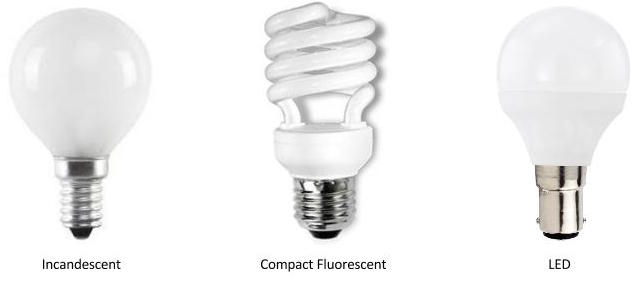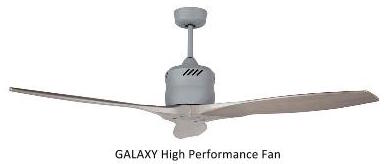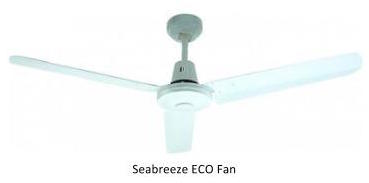Energy Saving Tips for Your Home
Being energy-conscious benefits you as much as it benefits the environment. By actively trying to make your home energy-efficient, you reduce your footprint on the Earth and save yourself money in power bills at the same time. We’ve put together some easy energy saving tips for your home that can help you be more energy-efficient with minimal effort.
There are lots of ways to save energy that cost you nothing to do. Some things can cost a little to implement, but end up saving you a lot - and a couple of tips can be costly in the beginning, but if you have the cash to spare, they provide great long-term rewards.
So what can you do around the house to reduce your power usage?
No Cost Tips
- Try non-electrical methods of cooling first:
- open windows and doors to create airflow before turning to electrical means of cooling you down.
- if opening windows and doors doesn’t work, put on a ceiling fan to see if that makes you cool enough.
- if all else fails, then turn on the air conditioner - but try a slightly higher temperature than normal combined with a fan - even one or two degrees higher can save you power and still keep you cool. Also make sure your air conditioner filters are clean, otherwise it will take more power to cool the area.
- Try non-electrical methods of heating first:
- put on an extra layer of clothing and add another blanket to the bed before using electrical means of heating.
- try an electric blanket or hot water bottle in bed if the extra blanket isn’t enough
- if these don’t warm you up enough, then turn on the heater. Again combine this with a fan on the lowest setting to circulate the warm air that gets trapped up near the ceiling, and you can keep the temperature of the heater a little lower for the same effect with less power being used.
- If you aren’t using a particular room for an extended period, turn off the air conditioner or heater in that room - it doesn’t take that long to cool or heat an area again if you come back in later, and closing the door when you leave will help keep the warm or cool air in.
- Turn off the fan when you aren’t in the room - fans cool people, not spaces.
- Set the fan to rotate counter-clockwise in summer - this blows the air down onto you, and clockwise in winter - this circulates the warm air trapped at the top of a room back down again.
- Use cold water to wash your clothes rather than warm or hot. Most of the energy used in a washing machine is to heat up the water - and these days, most detergents on the market work just fine with cold water.
- Hang your clothes out to dry rather than using a dryer if possible. This cuts out a huge energy-user. If you must use the dryer, make sure the lint collector is empty - this saves a little bit of energy.
- Most of your appliances will have standby mode active even when they are turned off - for example your television, DVD player, game consoles - so they are using small amounts of power even when “off”. The same goes for things like microwaves or anything else that displays a message, like the time, when not being used. By unplugging these appliances when you are not home, or when you go to bed, you will stop that power being used:
- even phone or camera chargers draw a little bit of power when still plugged in - so unplug those when not charging a device.
- an easy way to unplug everything is to have all the appliances in one area connected to a powerboard that then connects to the wall. By just switching off the power or unplugging the powerboard from the wall you turn off all those items at once.
- Turn off lights when you leave a room:
- the life of incandescent light bulbs is slightly reduced by turning them on and off frequently, but the amount of power they use when on for no reason far outweighs the slightly shorter life - so turn them off when you don’t need them.
- fluorescent lights are more affected by turning them on and off all the time, so a basic guide is that if you are out of the room for more than 15 minutes, turn them off - fewer than 15 minutes, you can leave them on without it weighing too much on your conscience.
- light emitting diodes, or LEDs, are completely unaffected by turning them on and off - so every time you leave them room, switch them off!

Low Cost Tips
- Switch the light bulbs throughout your house to more energy-efficient bulbs:
- Your standard incandescent bulb uses about 7 times more energy than a compact fluorescent (CFL), and 10 times more energy than an LED. These options cost a little to buy and replace your old lights, but you start saving power - and money - immediately. They also last a lot longer, so won’t burn out as frequently as incandescents - meaning less waste as well as less energy used.
- Do you leave the porch light, or another outdoor light, on when you go out at night so you can see when you get home? Leaving even just one light on for an extended period can cost you greatly. Consider installing a sensor light that turns on when you arrive home, rather than having a light sitting on for hours.
- Light pathways in your yard or garden with solar lights. They power themselves, and some can be set to turn on by themselves too.
- If your heater is working harder than it should because your floors still feel cold underfoot, consider investing in a couple of rugs for key places in your home - they will be warmer underfoot than hard floors, and make the heater’s job a bit easier.
- Install some dimmer switches so you can lower the brightness of the lights if you don’t need the full light to be on - lights use less energy the dimmer they are.
Higher Cost Tips
- Upgrade your appliances to ones with the best Energy Rating Label (ERL). You will most likely already have appliances that have the ERL sticker on, but you can check to see if you can get ones with a better rating. Upgrading to the best ones will take a bit of money, but if you have it spare and want to lessen your footprint, it’s a good way to go.
- appliances that must have an ERL include:
- air conditioners
- clothes dryers
- clothes washers
- computer monitors
- dishwashers
- freezers
- refrigerators
- televisions
- the appliance will have a star rating between one and ten, and the more stars it has, the more energy-efficient it will be.
- appliances that must have an ERL include:
- Consider installing a solar power system in your house. This takes a good chunk of change (thousands) to start with, and takes a while (years) to generate enough solar power to recoup the cost - but this is a fantastic way to reduce your impact on the Earth, especially if you live in one of the sunnier parts of the country that will definitely get you a decent amount of sunlight. Think of it as an investment that will set you back in the beginning, but will prove itself with time - because that’s exactly what it is!
So cut your energy use, cut your power bills, and cut the environment a little slack! The best part is that you can start right now - go turn off those lights!




